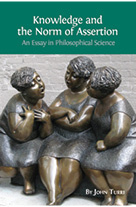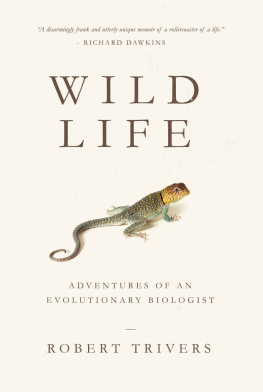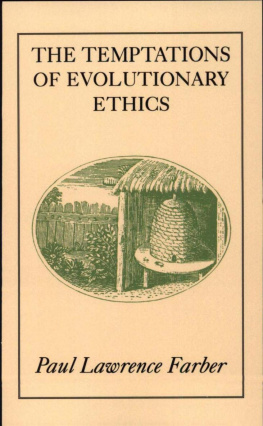THE NEW EVOLUTIONARY SOCIAL SCIENCE
THE NEW EVOLUTIONARY SOCIAL SCIENCE
Human Nature, Social Behavior, and Social Change
Edited by
Heinz-Jrgen Niedenzu
Tams Meleghy
Peter Meyer
First published 2008 by Paradigm Publishers
Published 2016 by Routledge
2 Park Square, Milton Park, Abingdon, Oxon OX14 4RN
711 Third Avenue, New York, NY 10017, USA
Routledge is an imprint of the Taylor & Francis Group, an informa business
Copyright 2008 Taylor & Francis.
All rights reserved. No part of this book may be reprinted or reproduced or utilised in any form or by any electronic, mechanical, or other means, now known or hereafter invented, including photocopying and recording, or in any information storage or retrieval system, without permission in writing from the publishers.
Notice:
Product or corporate names may be trademarks or registered trademarks, and are used only for identification and explanation without intent to infringe
Library of Congress Cataloging-in-Publication Data
The new evolutionary social science : human nature, social behavior, and
social change / edited by Heinz-Jrgen Niedenzu, Tams Meleghy, Peter Meyer.
p. cm. (Studies in comparative social science)
Includes bibliographical references and index.
ISBN 978-1-59451-396-1 (hardcover : alk. paper)
ISBN 978-1-59451-397-8 (paperback : alk. paper)
1. Social evolution. 2. Human evolution. 3. Social Darwinism. I.
Niedenzu, Heinz-Jrgen. II. Meleghy, Tamas, 1941 III. Meyer, Peter, 1941
HM626.N49 2008
303.4dc22
2008026396
Designed by Straight Creek Bookmakers.
ISBN 13: 978-1-59451-396-1 (hbk)
ISBN 13: 978-1-59451-397-8 (pbk)
CONTENTS
Tams Meleghy, Peter Meyer, and Heinz-Jrgen Niedenzu
Stephen K. Sanderson
Michael Schmid
Nico Wilterdink
Rosemary L. Hopcroft
Christoph Antweiler
Khaled Hakami
Peter Meyer
Heinz-Jrgen Niedenzu
Tams Meleghy
J. M. G. van der Dennen
C. R. Hallpike
J. P. Roos
Anna Rotkirch
Frank Salter
W. G. Runciman
Peter M. Hejl
Stephen K. Sanderson
We would like to express our gratitude to all the institutions and individuals enabling us to accomplish the conference on which this volume is based. In particular our thanks go to the Federal Ministry of Education, Science, and Culture of the Republic of Austria; to the Federal State of Vorarlberg, Austria; to the Rector of Innsbruck University; to the Dean of the Innsbruck School of Political Science and Sociology; to the Head of the Department of Sociology at Innsbruck University; to the Austrian Research Association; to the Studia Bookshop; and to Bettina Posch, who supported us during the meeting. Moreover, our thanks go to Stephen Sanderson and Paradigm Publishers for agreeing to publish this volume, and last but not least to Ellen Palli, who took care of the final preparation of the manuscript.
Tams Meleghy, Innsbruck
Peter Meyer, Augsburg
Heinz-Jrgen Niedenzu, Innsbruck
Tams Meleghy
Peter Meyer
Heinz-Jrgen Niedenzu
From its very beginning, sociology was concerned with problems of social change and the formation of different types of society. Many early sociologists, most prominently Herbert Spencer, took biology seriously by comparing societies to organisms. The subfield of sociology then known as social statics was concerned to describe how the parts of societies were interrelated in the same manner that they were in biological organisms. The other major subfield of sociology at the time, social dynamics, made a different kind of comparison, in this case between the long-term development of societies and ontogenetic development. This, of course, was the tradition of sociological organicism (Martin-dale 1960). In these early years it was also common for sociologists to take biology seriously in another way, which was in terms of conceptions of human nature. Social scientists in different fields, sociologists included, took the then new Darwinian evolutionism seriously; they thought there was such a thing as human nature, and that it played an important role in shaping social behavior and social structure. The early-twentieth-century sociologist Edward Westermarck, for example, wrote multivolumed works on human marriage practices and morality that revealed the very strong influence of Darwinian natural selectionist thinking.
However, due to disciplinary institutionalization and differentiation, most of twentieth-century sociology was characterized by a growing discord between sociology and biology. Emile Durkheim equated the social with moral sentiments, such as social norms and institutions, whereas Max Weber conceived of sociology as a science specializing in verstehen, or the understanding of human action from the subjective point of view of the actor. From the point of departure of these classical sociologists, the discipline turned sharply away from biology, largely ignoring biological factors in favor of entirely social explanations. And what was true in the classical period is equally true today. In German sociology, the two leading sociological theorists have been Niklas Luhmann and Jrgen Habermas. Even though Luhmann pleaded for an evolutionary account of social behavior, he chose Stephen Jay Goulds approach (Gould and Lewontin 1997) instead of referring to mainstream evolutionary biology. Habermas envisages still another version of evolutionary thinking, one referring to a universal, quasi-teleological developmental logic (Antweiler 1985). In France the leading contemporary sociological theorist was, of course, Pierre Bourdieu, who explicitly made the point in one of his last interviews that the distinctiveness of sociology as a discipline was its rejection of all naturalistic explanations in favor of social explanations. One of his last books, La domination masculine (1998), had as its main theme the notion that gender is a social construct that attempts to naturalize itself, i.e., to make us think that the differences between the sexes are natural differences. And in Britain, the leading sociological theoretician, Anthony Giddens, has rarely made reference to anything biological. In his introductory textbook, for example, his exceedingly brief treatment of sociobiology regards it as an entirely speculative endeavor.
For an extended period of time, the adequacy of sociological approaches to the social remained unchallenged. More recently, however, sociology has been confronted with various forms of biological explanation. More and more, the approaches known as sociobiology and evolutionary psychology have had a significant influence in sociologys sister disciplines of psychology and anthropology, and are even being referred to in public discourse. These and related approaches are part of a Second Darwinian Revolution that was initiated by such biologists as William Hamilton (1964), Robert Trivers (1971), Richard Dawkins (1976, 1986), and Edward O. Wilson (1975, 1998). Hamilton introduced the notion of





